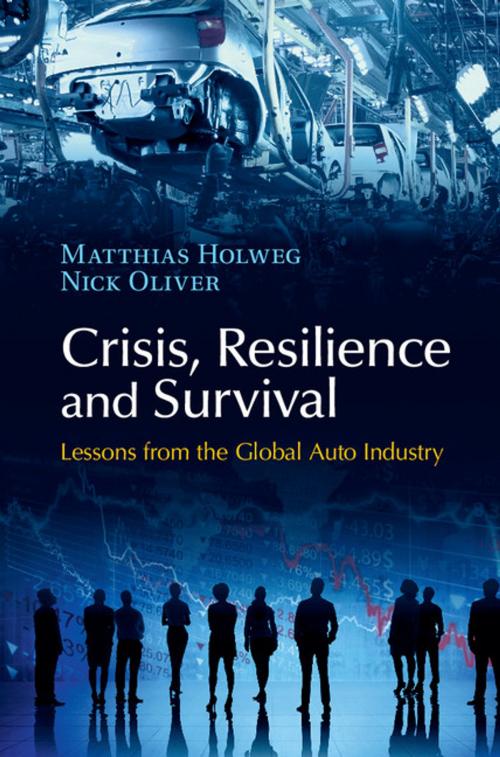Crisis, Resilience and Survival
Lessons from the Global Auto Industry
Business & Finance, Management & Leadership, Planning & Forecasting, Nonfiction, Reference & Language, Transportation| Author: | Matthias Holweg, Nick Oliver | ISBN: | 9781316481967 |
| Publisher: | Cambridge University Press | Publication: | December 1, 2015 |
| Imprint: | Cambridge University Press | Language: | English |
| Author: | Matthias Holweg, Nick Oliver |
| ISBN: | 9781316481967 |
| Publisher: | Cambridge University Press |
| Publication: | December 1, 2015 |
| Imprint: | Cambridge University Press |
| Language: | English |
Crisis, Resilience and Survival charts the evolution of the global automotive industry, revealing the pressures and challenges facing firms in this huge but turbulent realm of business. Long-term overcapacity and swings of the economic cycle mean that many car companies are in financially perilous positions. Yet failures of auto companies are rare, and many have bounced back from the brink. Using the concept of the 'survival envelope', Holweg and Oliver argue that the ability to design, develop, manufacture and distribute vehicles competitively is not the only factor in ensuring success. Using detailed analyses of two failures (Rover and Saab) and two near-misses (Chrysler and Nissan) they explore how scale, market reach and supportive stakeholder relations can make the difference between success and failure in this global industry. This book will appeal to anyone working in, or studying the auto industry, as well as those interested in corporate success and failure.
Crisis, Resilience and Survival charts the evolution of the global automotive industry, revealing the pressures and challenges facing firms in this huge but turbulent realm of business. Long-term overcapacity and swings of the economic cycle mean that many car companies are in financially perilous positions. Yet failures of auto companies are rare, and many have bounced back from the brink. Using the concept of the 'survival envelope', Holweg and Oliver argue that the ability to design, develop, manufacture and distribute vehicles competitively is not the only factor in ensuring success. Using detailed analyses of two failures (Rover and Saab) and two near-misses (Chrysler and Nissan) they explore how scale, market reach and supportive stakeholder relations can make the difference between success and failure in this global industry. This book will appeal to anyone working in, or studying the auto industry, as well as those interested in corporate success and failure.















